第5章
[1] "Not least art thou, thou little Bethlehem In Judah, for in thee the Lord was born; Nor thou in Britain, little Lutterworth, Least, for in thee the word was born again." --Sir John Oldcastle.
Of course, all this was before the days of printing, and copies were made by hand only.Yet there were very many of them.One hundred and fifty manuscripts, in whole or in part, are extant still, a score of them of the original version, the others of the revision at once undertaken by John Purvey, Wiclif's disciple.The copies belonging to Edward VI.and Queen Elizabeth are both still in existence, and both show much use.Twenty years after it was completed copies were counted very valuable, though they were very numerous.It was not uncommon for a single complete manuscript copy of the Wiclif version to be sold for one hundred and fiftyor two hundred dollars, and Foxe, whose Book of Martyrs we used to read as children, tells that a load of hay was given for the use of a New Testament one hour a day.
It would be difficult to exaggerate the influence of this gift to the English people.It constitutes the standard of Middle English.Chaucer and Wiclif stood side by side.It is true that Chaucer himself accepted Wiclif's teaching, and some of the wise men think that the "parson" of whom he speaks so finely as one who taught the lore of Christ and His apostles twelve, but first followed it himself, was Wiclif.But the version had far more than literary influence; it had tremendous power in keeping alive in England that spirit of free inquiry which is the only safeguard of free institutions.Here was the entire source of the Christian faith available for the judgment of common men, and they became at once judges of religious and political dogma.Dr.Ladd thinks it was not the reading of the Bible which produced the Reformation; it was the Reformation itself which procured the reading of the Bible.[1] But Dr.Rashdall and Professor Pollard and others are right when they insist that the English Reformation received less from Luther than from the secret reading of the Scripture over the whole country.What we call the English spirit of free inquiry was fostered and developed by Wiclif and his Lollards with the English Scripture in their hands.Out of it has grown as out of no other one root the freedom of the English and American people.
[1] What Is the Bible?, p.45.
This work of Wiclif deserves the time we have given it because it asserted a principle for the English people.There was much yet to be done before entire freedom was gained.At Oxford, in the Convocation of 1408, it was solemnly voted: "We decree and ordain that no man hereafter by his own authority translate any text of the Scripture into English, or any other tongue, by way of a book, pamphlet, or other treatise; but that no man read any such book, pamphlet, or treatise now lately composed in the time of John Wiclif...until the said translation be approved by the orderly of the place." But it was too late.It is always too late to overtake a liberating idea once it gets free.Tolstoi tells of Batenkoff, the Russian nihilist, that after he was seized and confined in his cell he was heard to laugh loudly; and,when they asked him the cause of his mirth, he said that he could not fail to be amused at the absurdity of the situation."They have caught me," he said, "and shut me up here; but my ideas are out yonder in the streets and in the fields, absolutely free.They cannot overtake them." It was already too late, twenty years after Wiclif's version was available, to stop the English people in their search for religious truth.
In the century just after the Wiclif translation, two great events occurred which bore heavily on the spread of the Bible.One was the revival of learning, which made popular again the study of the classics and the classical languages.Critical and exact Greek scholarship became again a possibility.Remember that Wiclif did not know Greek nor Hebrew, did not need to know them to be the foremost scholar of Oxford in the fourteenth century.Even as late as 1502 there was no professor of Greek at the proud University of Erfurt when Luther was a student there.It was after he became a doctor of divinity and a university professor that he learned Greek in order to be a better Bible student, and his young friend Philip Melancthon was the first to teach Greek in the University.[1] But under the influence of Erasmus and his kind, with their new insistence on classical learning, there came necessarily a new appraisal of the Vulgate as a translation of the original Bible.For a thousand years there had been no new study of the original Bible languages in Europe.The Latin of the Vulgate had become as sacred as the Book itself.But the revival of learning threw scholarship back on the sources of the text.Erasmus and others published versions of the Greek Testament which were disturbing to the Vulgate as a final version.
[1] McGiffert, Martin Luther.
The other great event of that same century was the invention of printing with movable type.It was in 1455 that Gutenberg printed his first book, an edition of the Vulgate, now called the Mazarin Bible.The bearing of the invention on the spread of common knowledge is beyond description.It is rather late to be praising the art of printing, and we need spend little time doing so; but one can see instantly how it affected the use of the Bible.It made it worth while to learn to read--there would be something to read.It made it worth while to write--there would be someone to read what was written.